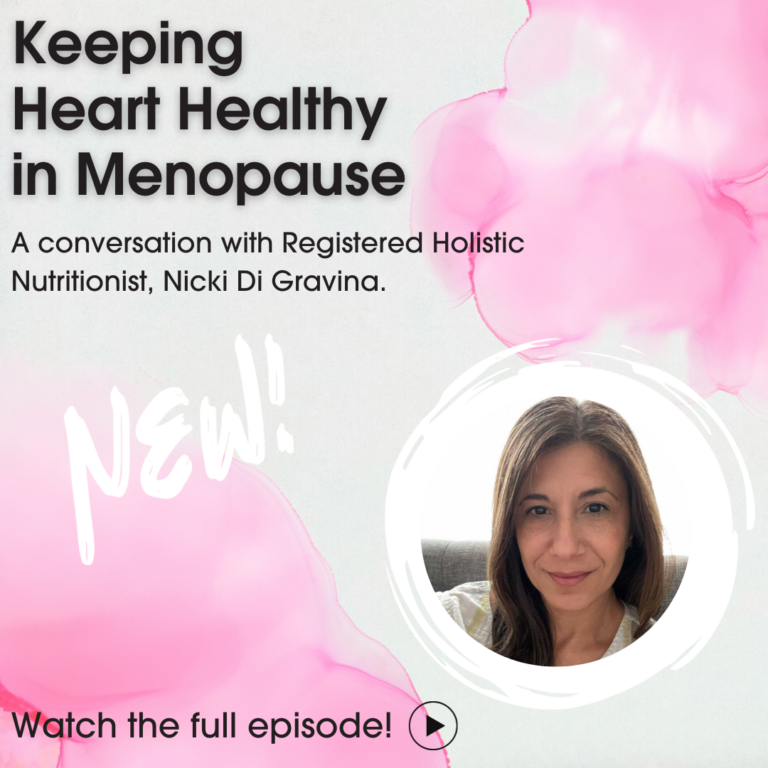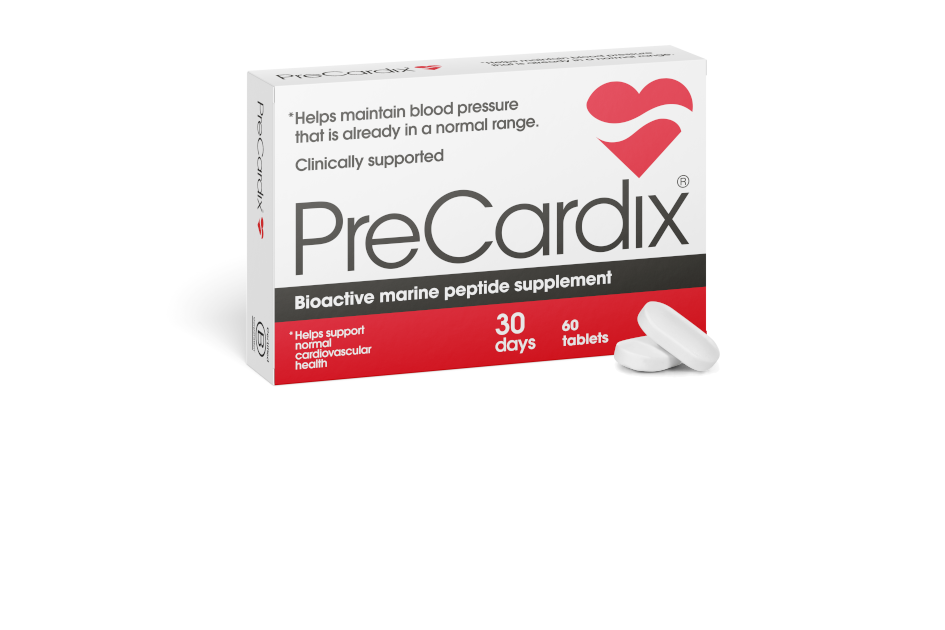Menopause | Perimenopause | Women's Health | Healthy Heart in Menopause
How to support yourself through menopause and stay heat healthy.
Why is heart disease different in women and how does gender play a role?
Women often have different health issues and concerns than men, and experience a variety of changes across a lifespan from puberty, to pregnancy through until menopause. For instance, girls with early or late puberty timing have a greater risk of developing heart disease later in life. Pregnancy involves numerous physical, psychological and lifestyle changes all of which influence the future of a woman’s health. Healthy weight levels, breastfeeding and birth-spacing may have positive long-term impacts on their heart health. The hormonal changes that occur during menopause, as well as natural age-related changes, significantly increase women’s risk for heart disease.
Menopause occurs on average at age 51 and is diagnosed one year from a woman’s last menstrual cycle, with perimenopausal symptoms lasting as long as a decade beforehand. Menopause is when a woman experiences decreasing levels of estrogen in the body. Estrogen is a hormone that plays a role in many functions in the body including blood pressure. Estrogen helps to keep blood pressure low, however, the decline in levels throughout the transition into and after menopause leaves women at a higher risk to develop high blood pressure and heart disease.
Maintaining a Healthy Heart in Menopause
There are risk factors related to cardiovascular health in addition to pregnancy, age, and menopause which include family history, being overweight, not being physically active, too much alcohol and sodium in the diet, stress, and other lifestyle habits. Women experience unique changes throughout life, and although there are a variety of risk factors to be aware of, there are a number of things that are within your control. Implementing lifestyle and nutritional preventative measures into your day-to-day life are effective, and supportive steps to help you stay heart healthy.
Lifestyle Prevention
Managing your health and taking active steps to maintaining healthy behaviours during and after the menopausal transition are essential for your overall well being and heart health. Focus on what’s in your control, set small and realistic goals, and consider speaking with a professional if needed.
Lifestyle preventative tips to staying heart healthy:
Stress Management
Stress and adrenal function is critical to hormone management, perimenopause and menopause because it plays a role in hormonal balance. The Hypothalamic Pituitary Adrenal (HPA) axis is our central stress response system that regulates many body responses, and adrenal function becomes a backup system to produce enough hormones beyond menopause. For that reason, stress management is key to lifestyle prevention. To help manage stress do things that make you happy and that you enjoy, set boundaries and take time for yourself daily (it can be as little as 5-10 minutes a day), get social by setting time aside to connect with loved ones or join a group, team, or club to further engage with others and do things you enjoy.
Exercise
Being active has far reaching effects on a woman’s health including maintaining good heart health, weight management, and it helps to reduce the risk of high blood pressure. Move 20-30 minutes daily, and be sure not to overdo it. Engage in exercises that you enjoy, create a schedule, and try different physical activities like walking, yoga and weight lifting which all support heart health.
Sleep
Sleep plays a vital role in overall health. Not sleeping well can have an effect on cardiovascular health and may lead to high blood pressure. To get better sleep, create a comfortable sleeping environment by keeping your room cool, minimize nighttime stimulants to reduce interruptions in sleep like exercise, smoking, drinking alcohol or caffeine, and eating too much too late. Also, consider establishing a routine by going to bed and waking up at about the same time 7 days a week.
Diet
Nutritional prevention and consuming a healthy diet rich in whole and fiber rich foods like fruits, vegetables, nuts, seeds, healthy fats, and lean protein is a natural way to support your heart health.
Nutritional Prevention:
Our relationship with food is essential to reconnecting with our bodies. It’s an empowering way to support ourselves throughout life, especially in menopause. There are a variety of ways to develop a mindful approach to nutritional prevention which include following a healthy diet and being aware of what foods to avoid and what to enjoy, as well as natural supplements.
Foods to avoid to improve and maintain healthy blood pressure, reduce inflammation and to stay heart healthy:
- High salt foods
- Processed, refined, convenience and fried foods
- Added sugars and simple carbohydrates
- Overconsumption of alcohol and caffeine
- Trans fats and hydrogenated fats
- Food high in additives and preservatives
Foods to enjoy to maintain overall good health and reduce the risk of high blood pressure and heart disease:
- Foods high in bioflavonoids found in fruit (citrus, apples, peaches, plums, strawberries and blackberries) and vegetables (kale, onions, spinach, and broccoli), etc.
- High fiber foods including fruits (pears, avocado, raspberries, banana and berries), vegetables (dark leafy greens, carrots, beets, artichoke, brussels sprouts), beans (lentils and kidney), whole grains (quinoa and oats), nuts (almonds, walnuts and pistachios) and seeds (chia, pumpkin and sesame), etc.
- Omega-3 rich foods such as wild caught salmon, cold pressed olive oil, chia seeds and flax seeds
- Ensure adequate protein from both lean animal and plant protein
- Pure filtered water
Natural supplements for menopause and cardiovascular health:
- Magnesium Bisglycinate: may help reduce unwanted side effects of menopause, such as difficulty sleeping and depression while supporting heart health
- B vitamins: the conversion and production of hormones from your adrenal glands relies heavily on B vitamins, especially B5 (pantothenic acid)
- Vitamin E to support the cardiovascular system and may help ease stress
Another natural way to support your blood pressure health is with bioactive marine peptides. A therapeutic dose of 1200 mg of unique bioactive marine peptides derived from cold-water shrimp shells (Pandalus borealis) has been clinically proven to help maintain a healthy blood pressure*.
*International Journal or Hypertension, Article 2345042.
Always consult your primary health care provider before making any changes to your lifestyle, nutrition, supplementation or your health management plan.
Empowering Women: Preventative Measures for Heart Health During Menopause
Women experience different health issues, concerns and changes across a lifespan than men, which may put them at greater risk for heart disease. The risk increases with age during the transition into menopause and after. Which is why it’s so important for women to focus on prevention, and what’s in their control by managing and maintaining supportive healthy behaviours. Actively take action by being mindful and implementing lifestyle habits such as stress management, exercise, sleep and diet. Nutritional prevention is another empowering way to support our overall health and reconnect with the body. Follow a healthy diet, bring awareness to what foods to avoid, enjoy supportive and beneficial foods, and natural supplements. Include these preventative measures into your day to day to effectively help and support yourself through menopause and stay heart healthy.
Nicki Di Gravina is a Registered Holistic Nutritionist. She is also an Ayurveda practitioner and Art therapist. You can learn more at feedforlove.com and on social media under her handle @feedforlove.
Important Information
Always consult with your healthcare provider before making changes to your blood pressure management plan. PreCardix® does not treat, cure, or prevent medical conditions. Measure and monitor blood pressure regularly. Know the signs of heart attack and stroke.
Do not take PreCardix® if you are pregnant, breastfeeding, have renal artery stenosis, have a history of angioneurotic edema, or have a shellfish allergy. Consult product guidelines for additional information. Print and share the product monograph with your healthcare provider.
PreCardix® is an innovation of Marealis Inc. a Norwegian Bio-Tech company dedicated to finding natural, sustainable, and effective marine-based solutions for blood pressure health, globally. Designed in Norway. Manufactured in North America.
Customer Reviews From Amazon
References
[1] Society of Behavioural Medicine, Women’s Heart Health Part 1: What to Know about Women and Heart Disease across the Lifespan, Allison J. Carroll, PhD; Research Associate, Department of Psychiatry and Behavioral Sciences, Northwestern University Feinberg School of Medicine. Lisette T. Jacobson, PhD, MPA, MA; Assistant Professor, Department of Population Health, University of Kansas School of Medicine – Wichita. Allison E. Gaffey, PhD; Research Associate, Department of Internal Medicine, Yale University School of Medicine











